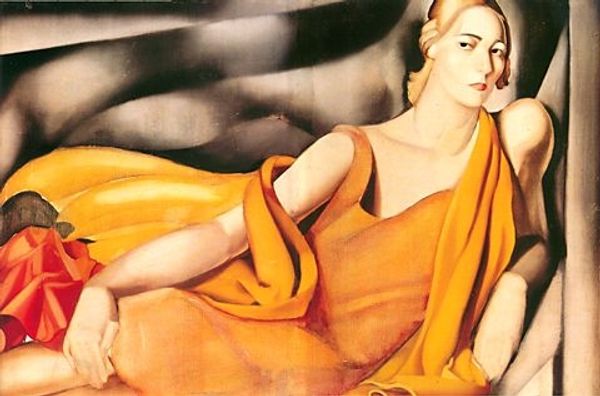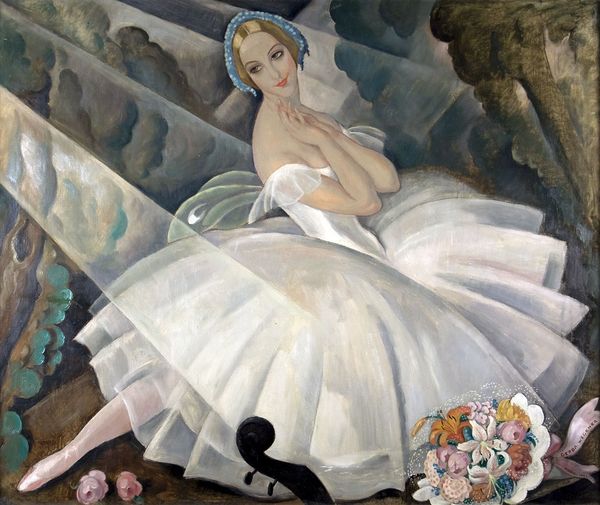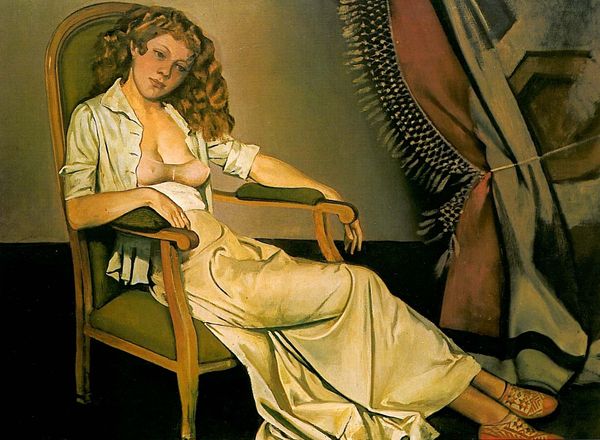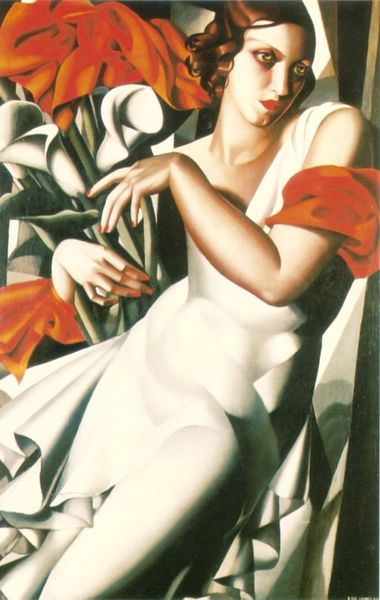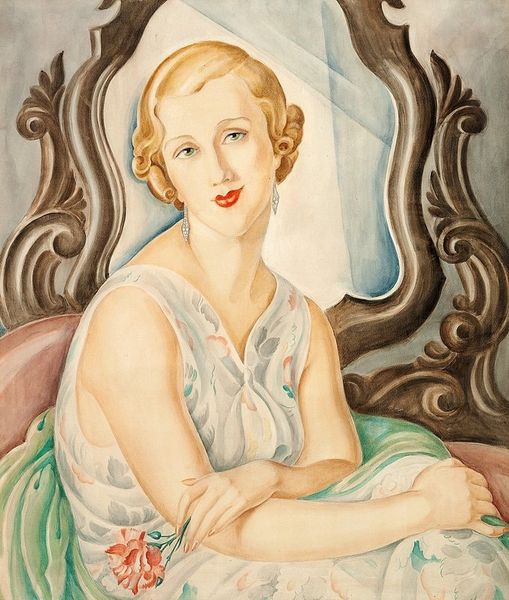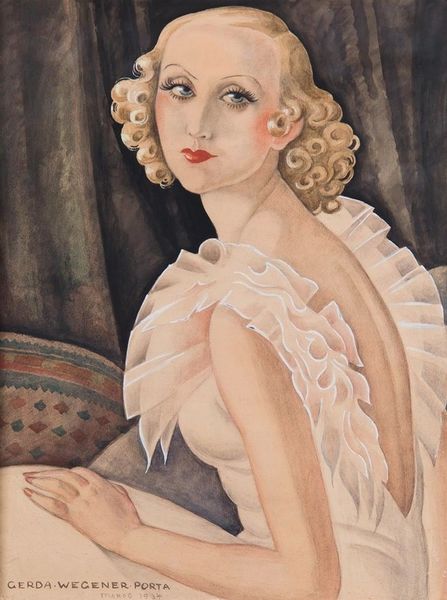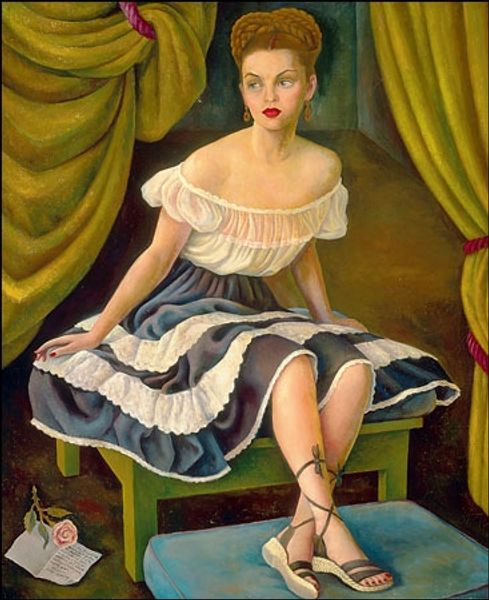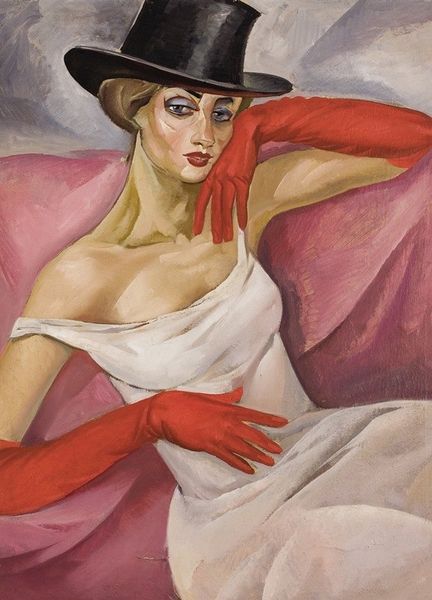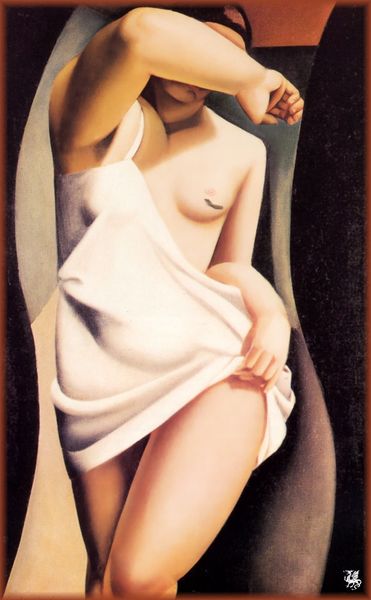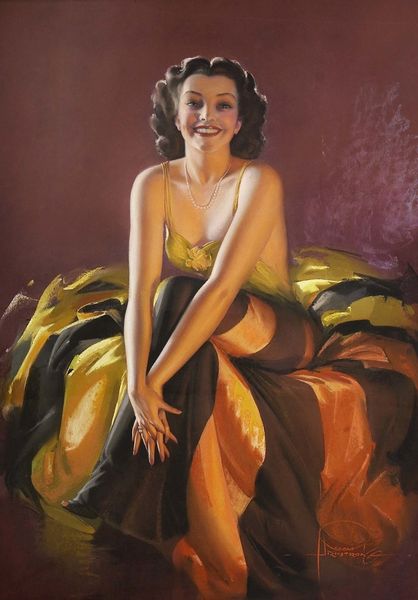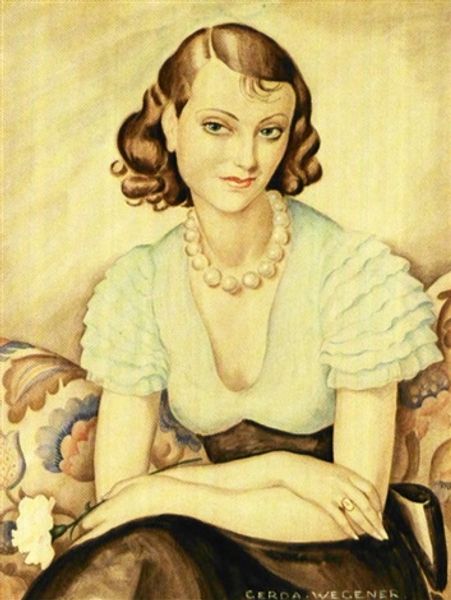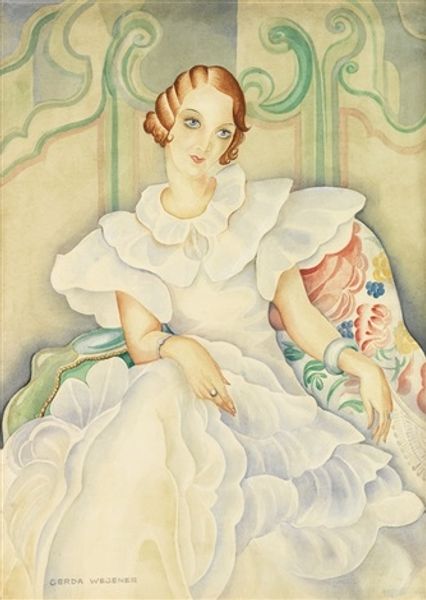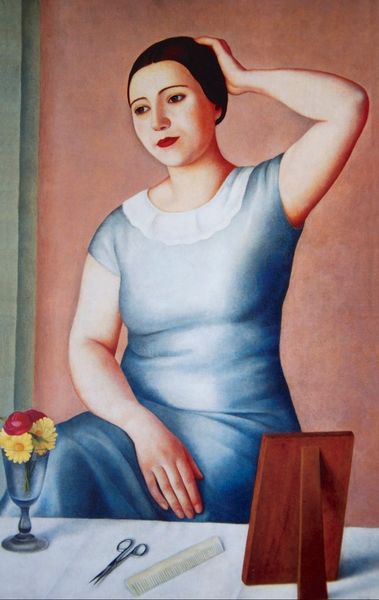
painting, oil-paint
#
portrait
#
painting
#
oil-paint
#
oil painting
#
mexican-muralism
#
portrait art
#
realism
Dimensions: 115 x 153 cm
Copyright: Diego Rivera,Fair Use
Curator: What strikes me first is the somewhat restrained sensuality of this portrait. There’s something in the way Natasha is posed that suggests both allure and distance. What are your immediate thoughts? Editor: Yes! "Restrained" captures it perfectly. It’s glamorous, of course, the white dress and all the dazzling jewelry, but there’s an underlying current of melancholy in her expression that prevents it from being overtly celebratory. Like a muted trumpet solo at a party. Curator: This is Diego Rivera's "Portrait of Natasha Zakólkowa Gelman" from 1943. Painted in oil, it portrays a prominent figure of Mexican cinema during what was a golden age for both Rivera and the film industry here. It hangs, now, in a private collection. Editor: The flowers! What a cascade of calla lilies, dwarfing her almost! And you know, Rivera had quite the fascination with these flowers, didn't he? They pop up throughout his work, often with different symbolic weight, but usually connected somehow with indigenous aesthetics. Curator: Exactly. During the ‘40s in Mexico, calla lilies became widely associated with indigenous labourers. Often sold by the bunch on market day, they symbolized both a hard day’s work and the cultural pride in selling produce that’s home grown and of the earth. There’s that tension—between the European idea of ‘portraiture’ as an aristocratic exercise, and these flowers grounding it, somehow. Editor: She seems consciously placed among all that cultural meaning; in fact, it is this connection to Mexican Muralism that helps one recognize Diego Rivera and his deep symbolism in Mexican culture, which elevates the artwork, overall. In what is more a statement of pride than the representation of any real figure. Curator: It makes you think about the complexities of identity, doesn’t it? Gelman, the glamorous star, and the cultural references around her creating a narrative of her context and place in the Mexican social strata. There’s almost an expectation for her, on our part, to occupy and reflect this reality through Rivera's artistic vision. Editor: Yes, Rivera masterfully wove socio-political themes with personal narratives. Thinking about her reception, the painting might be intended less for her alone, and more as a commentary of her cultural value in society, overall. That's Diego alright, playing those chords. Curator: A fascinating composition that invites you to consider a specific, fascinating moment in history, while engaging deeply with questions of identity and representation. Editor: An artwork that serves to illuminate the cultural dynamics of its time!
Comments
No comments
Be the first to comment and join the conversation on the ultimate creative platform.
